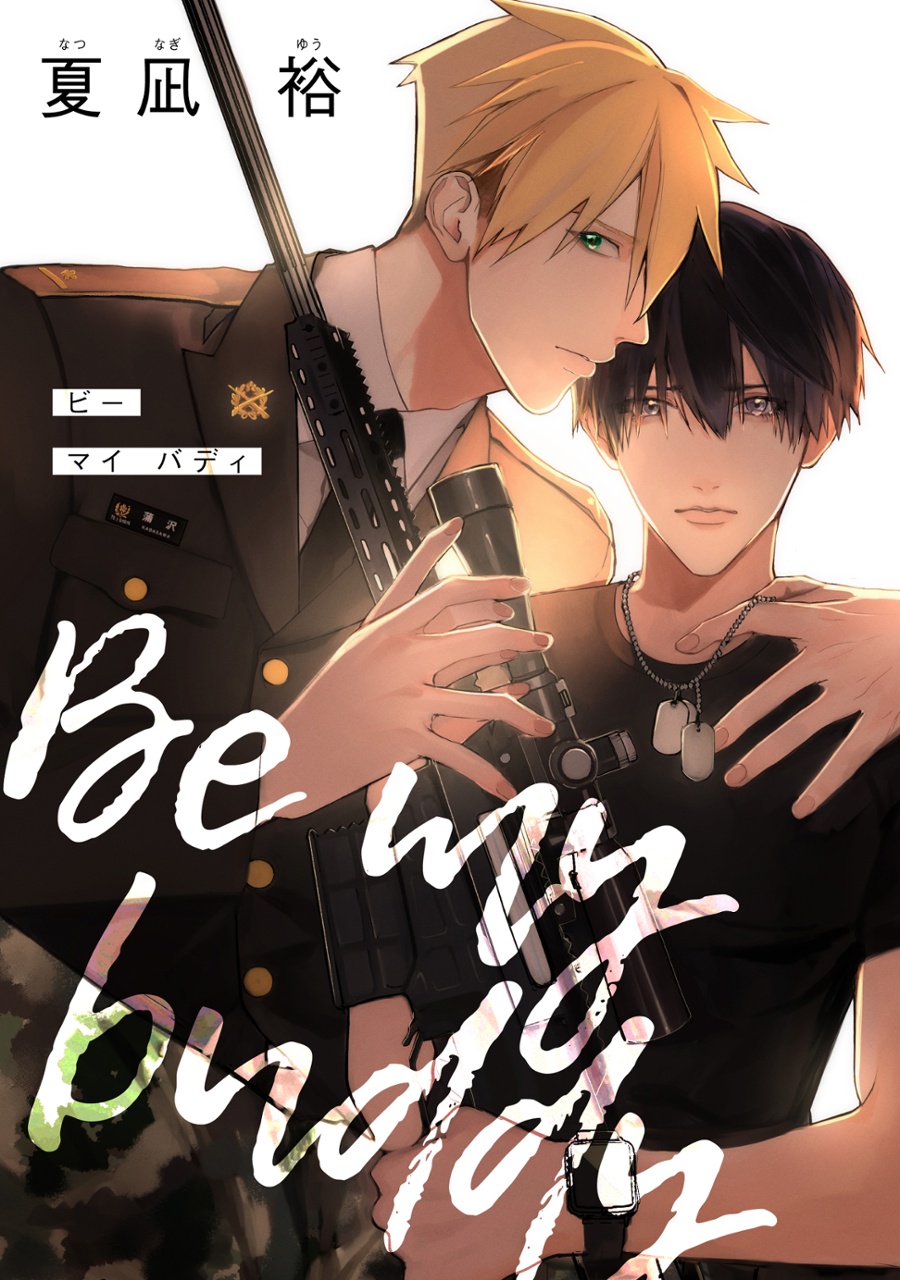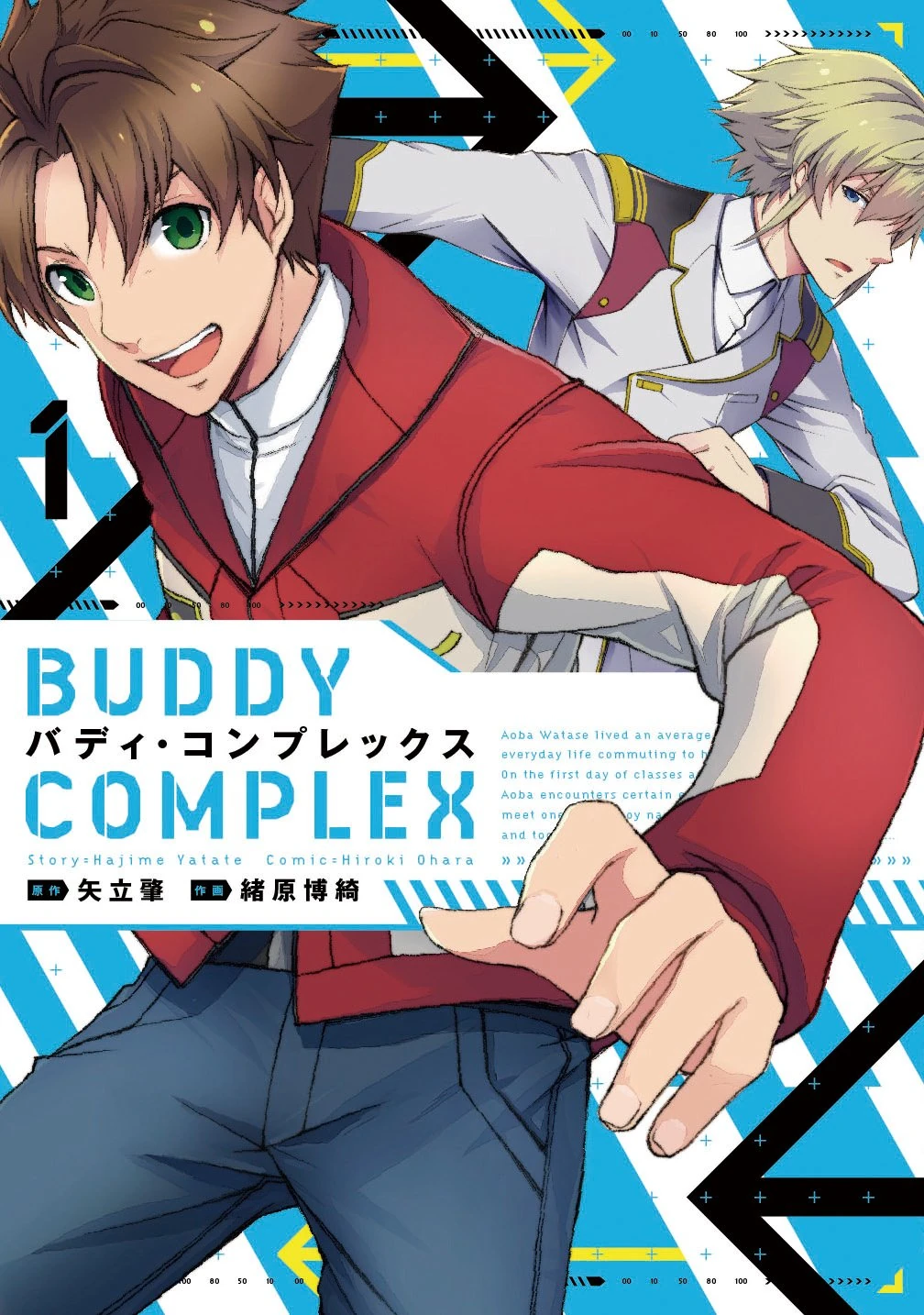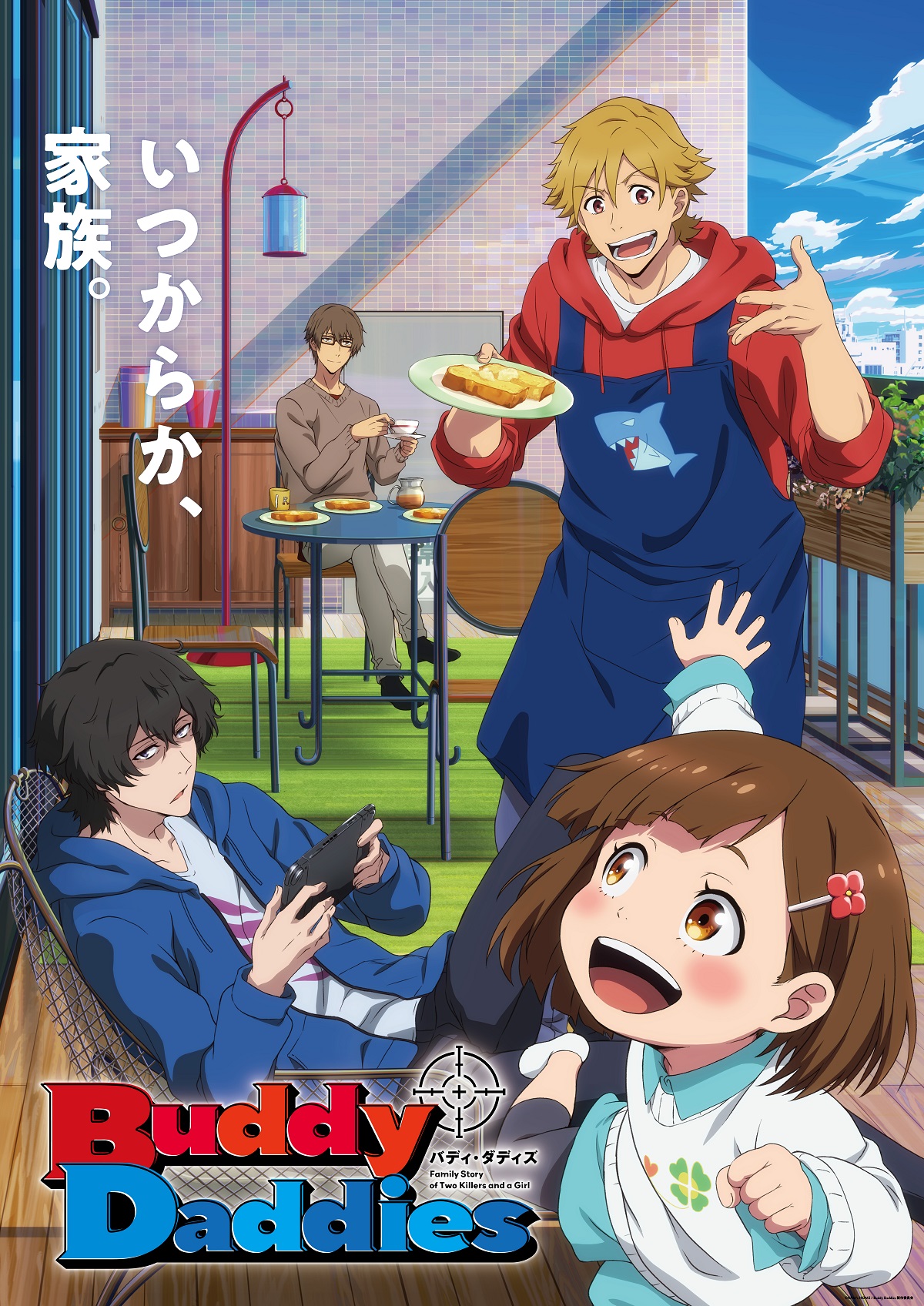Exploring The World Of Buddy Manga: More Than Just Friends
Have you ever stopped to think about the word "buddy"? It's a simple word, yet it carries so many different shades of meaning, isn't that so? From a casual acquaintance to a trusted confidant, the term "buddy" seems to pop up in all sorts of situations. This fascinating versatility is perhaps why the concept of "buddy" has found such a welcoming home in the vibrant world of manga and related media, giving rise to what some might call "buddy manga."
When we talk about "buddy manga," we're really touching on a broad spectrum of stories. These are narratives that often center around the deep, evolving connections between characters, be they friends, rivals who become allies, or even unexpected companions on an adventure. It's a theme that resonates deeply with readers, offering tales of support, growth, and shared experiences, which is quite appealing.
This idea of companionship, this "buddy" dynamic, extends far beyond just comic books, too. It shows up in various forms of entertainment and even in technology, reflecting a universal human desire for connection and assistance. Understanding the different ways "buddy" appears can really help us appreciate the rich tapestry of stories and innovations out there today, you know.
- Xxx Is Equal To 2024 Movie
- Xpxx
- Wasmo Somali Link Telegram 2025
- Breckie Hill Leaked Only Fans
- Nude Photos Of Brandi From Storage Wars
Table of Contents
- The Essence of "Buddy": A Closer Look
- "Buddy" in Manga and Digital Worlds
- The Reach of "Buddy" in Other Areas
- Frequently Asked Questions About "Buddy"
- Conclusion: The Enduring Appeal of Buddy Manga
The Essence of "Buddy": A Closer Look
The term "buddy" itself holds a unique place in our language. It's a word that suggests a friendly connection, perhaps not as deep as a best friend, but certainly more than a stranger. It's a term that feels, in some respects, quite approachable and generally safe to use across a wide array of social settings, which is interesting.
"Buddy" in Everyday Language
When you consider words that express friendship, "buddy" stands out as perhaps the most neutral choice, you know. Other terms, like "Bro," "Dude," or "Fella," can sometimes feel a bit out of place if you use them in a very formal social situation. They might even cause someone to raise an eyebrow, feeling a little inappropriate, which is something to consider.
However, "buddy" doesn't typically carry that same risk. It's a term that can comfortably refer to a friend, someone you're familiar with, or even just a colleague. This flexibility makes it a very useful word in everyday conversation, allowing for a friendly tone without being overly casual or presumptuous, so it's quite versatile.
- Mark Singer Gorilla Glue Passed Away
- Jameliz Benitez Only Fans
- Jessica Tarlov Husband
- What Happened To Dustin Hurt
- Sydney Sweeney Naked
For instance, if you were to tell someone, "Hey buddy, you're at the wrong door," as in the example given, it comes across as a helpful, albeit firm, correction rather than an insult. It sets a certain tone that is direct yet still, in a way, respectful of the person you are speaking to, which is pretty neat.
The Nuances of Friendship Words
There's a subtle but significant difference between words like "dude," "bro," "man," "buddy," and "pal," isn't there? While they all generally mean "friend" or "mate," their specific uses can indicate varying levels of closeness or formality. This is a common point of confusion for those learning the language, and it's quite understandable why.
"Bro," for example, often suggests a very close bond, perhaps even like family, or at least a very tight-knit friendship. It's a term that usually implies a strong sense of camaraderie and shared experience, you know. But "buddy," while friendly, might imply a slightly less intimate connection, or at least one that can be used in more varied contexts without implying deep personal history.
This distinction is important because it helps shape how we perceive relationships in stories, including manga. A "buddy" relationship in a narrative might start with less intensity than a "bro" relationship, allowing for more room for the characters to grow closer over time. It provides a foundation for developing dynamics that are relatable and, in some respects, quite realistic.
And what about addressing someone of a different gender? Can a man call a woman "buddy"? This is a question that comes up quite a bit. Generally speaking, while two men might use the word "buddy" with each other without issue, a man calling a woman "buddy" might be perceived differently. It's not inherently offensive, but it can sometimes feel a bit impersonal or even slightly dismissive of the gender difference, which is something to consider.
There isn't a perfect, single equivalent for women that carries the exact same neutral, friendly connotation as "buddy" does for men in all contexts. Terms like "pal" or "friend" are universal, of course, but "buddy" has a particular flavor that's a bit harder to replicate across genders, it's almost like it has its own unique space.
"Buddy" Beyond People: Robots and More
The concept of a "buddy" isn't just limited to human interactions, apparently. The idea of a companion or helper extends into the realm of technology, too. Consider the "Buddy" robot, for instance. This innovative creation, designed by French designer Rodolphe Hasselvander, was introduced as the world's very first family pet-like robot.
This robot was specifically made to assist children and older adults. Its name, "Buddy," immediately tells you its purpose: to be a companion, a helper, a friendly presence in the home. It embodies the essence of what a "buddy" means – someone or something that provides support and companionship, which is a very comforting idea.
The design of the "Buddy" robot reflects this intention, aiming to be approachable and non-threatening, like a friendly pet. This shows how the word "buddy" is used to convey a sense of helpfulness and comfort, even when referring to a piece of technology. It's a very clever use of language to set expectations and build trust with users.
"Buddy" in Manga and Digital Worlds
When we turn our attention to stories, particularly in manga, the "buddy" dynamic truly shines. "Buddy manga" often features pairs or groups of characters who develop strong bonds as they face challenges together. These stories can be incredibly heartwarming, exciting, or even quite funny, depending on the specific genre, you know.
Camp Buddy: A Digital Narrative
One specific example that comes up quite a bit in discussions is the game "Camp Buddy." This visual novel has garnered a significant following, apparently, with many players expressing deep emotional connections to its storyline and characters. The very title suggests a focus on companionship and shared experiences at a summer camp setting.
Players often talk about how much the game moved them, with some even getting quite teary-eyed after finishing a particular character's route, like the Yoichi line mentioned in the text. This indicates that the game successfully creates compelling character relationships that resonate with its audience. It's more than just a game; it's an experience about connection, you see.
For those interested in exploring this digital world, finding the official game can be a bit of a quest. People frequently ask where to purchase the legitimate version of "Camp Buddy," indicating a strong desire to support the creators and experience the story as intended. This shows the dedication of its fanbase, which is pretty cool.
Furthermore, players often seek out guides or "walkthroughs" for "Camp Buddy," especially concerning character intimacy segments. This isn't just about completing the game; it's about fully experiencing the narrative and ensuring that all possible story branches and character interactions are explored. It's about getting the most out of the "buddy" relationships presented in the game, which is quite a commitment.
The fact that players are "randomly pressing" buttons and missing out on plot points suggests the game's depth and the importance of understanding character interactions to fully appreciate the story. It means the "buddy" relationships aren't just superficial; they have a real impact on the progression of the narrative, you know, making them feel quite authentic.
The Impact of Character Relationships
The emotional impact of stories like "Camp Buddy" really highlights the power of "buddy" relationships in media. When players cry after finishing a character's story, it's a testament to how well those bonds were developed. It shows that these digital companions can feel just as real and meaningful as friendships in our own lives, which is a powerful thing.
These narratives often explore themes of self-discovery, acceptance, and mutual support, all through the lens of character interactions. A "buddy" in a manga or game isn't just a sidekick; they're often central to the protagonist's growth and the overall message of the story. It's about shared journeys and how people change each other, so it's quite profound.
The desire for "sweet romance and H scenes" mentioned by a player, while part of their initial motivation, ultimately led them to discover a much deeper narrative. This suggests that the "buddy" aspect, the emotional connection and story development, can often transcend initial expectations, leading to a richer experience. It's a classic example of how stories can surprise us, you know.
Humor and Community in Buddy Culture
The concept of "buddy" also finds its way into internet culture, often through humor and shared experiences. The mention of "netizen nacho buddy" turning a global programming competition experience into a meme is a perfect example of this. It shows how personal experiences, even niche ones, can become relatable and funny within a community, especially among "buddies" online.
Memes, in a way, are a form of shared language among a group of "buddies." They create a sense of belonging and inside jokes that only those familiar with the context will understand. This particular meme, whatever its content, likely resonated with others who have faced similar competitive pressures or just appreciate a good, relatable laugh, you know.
This illustrates how the "buddy" dynamic extends to online communities, where people who may never meet in person still form connections and share experiences. It's a modern interpretation of what it means to be a "buddy," adapting to the digital age and creating new forms of camaraderie, which is quite fascinating.
The Reach of "Buddy" in Other Areas
The influence of the "buddy" concept isn't limited to just social interactions or digital stories. It pops up in other surprising places, too, demonstrating its broad applicability and enduring appeal. This really shows how fundamental the idea of a helpful companion is across many different fields, you know.
Musical Buddies and Innovative Gear
Take the world of music, for instance. The legendary jazz drummer Buddy Rich, born in 1917, was a true prodigy, apparently. Even at the tender age of six in 1923, he was already displaying incredible talent, as seen in old photographs showing his Ludwig drum kit. He was, in a way, born with a gift, almost as if he had a "buddy" in his musical talent from day one.
The text describes him as "eagerly showing off" his abilities even at one year old, using a spoon to tap on a wooden table. This imagery paints a picture of a natural, almost innate connection to rhythm, as if music itself was his first "buddy." It's a beautiful way to think about a musician's bond with their craft, isn't it?
Then there's the realm of musical equipment. For someone just starting out with electric guitar, a common question arises: should I choose the Joyo Jam Buddy or save up for a Mooer? This choice represents a practical decision about which "buddy" – which piece of equipment – will best support their musical journey.
The "Jam Buddy" in the product name suggests a device that's meant to be a helpful companion for practice, something to make the learning process easier and more enjoyable. It's designed to be an accessible entry point for new musicians, a friendly tool to get them started, which is a very thoughtful approach to product naming.
This decision, between a more immediate, budget-friendly "buddy" like the Joyo Jam Buddy and a more significant investment like a Mooer, reflects the different stages of a musician's path. It's about finding the right companion for where you are in your learning, a choice that many aspiring artists face, you know.
Learn more about musical instruments on our site, and link to this page guitar accessories.
Frequently Asked Questions About "Buddy"
People often have specific questions about the term "buddy" and its various uses. Here are a few common ones:
Is addressing an American with the word 'buddy' considered offensive?
Generally speaking, no, addressing an American with "buddy" is not usually considered offensive. It's often used in a neutral or friendly way, particularly between men. However, context and tone are very important. If used aggressively or sarcastically, it could certainly be taken negatively, so it's all about how you say it.
Can a man call a woman buddy? If not, what is the equivalent for women?
While a man can technically call a woman "buddy," it's less common and might sometimes feel a bit impersonal or even slightly odd to some women. There isn't a single, perfect equivalent for women that carries the exact same nuance. "Friend," "pal," or even just using their name are generally safer and more universally accepted terms, you know.
What is the meaning of the meme "netizen nacho buddy made a meme about his experience in the global programming contest"?
Without the actual image, the specific meaning of the meme is hard to explain fully. However, the phrase itself suggests that an online acquaintance, referred to as "nacho buddy," created a humorous image or short video (a "meme") to share their personal experience from a global programming competition. It implies a relatable, perhaps self-deprecating, take on the challenges or quirks of such an event, shared within an online community for a laugh.
Conclusion: The Enduring Appeal of Buddy Manga
The idea of a "buddy," whether it's a person, a robot, or even a piece of music equipment, truly resonates with us, doesn't it? From the subtle social cues of everyday language to the deep emotional journeys found in "buddy manga" and visual novels like "Camp Buddy," the theme of companionship is a powerful one. It speaks to our shared human experience, our desire for connection, and the comfort we find in having someone by our side.
As we continue to explore new stories and technologies, the concept of a "buddy" will undoubtedly evolve, but its core meaning—that of a supportive companion—will always remain relevant. It's a simple word, yet it opens up a whole world of relationships and adventures, reminding us that no matter what, we're rarely truly alone, and that's a very comforting thought.

Be my buddy (manga) - Anime News Network

BUDDY COMPLEX (Manga) | Dengeki Wiki | Fandom

Buddy Daddies Image by P.A. Works #3902168 - Zerochan Anime Image Board